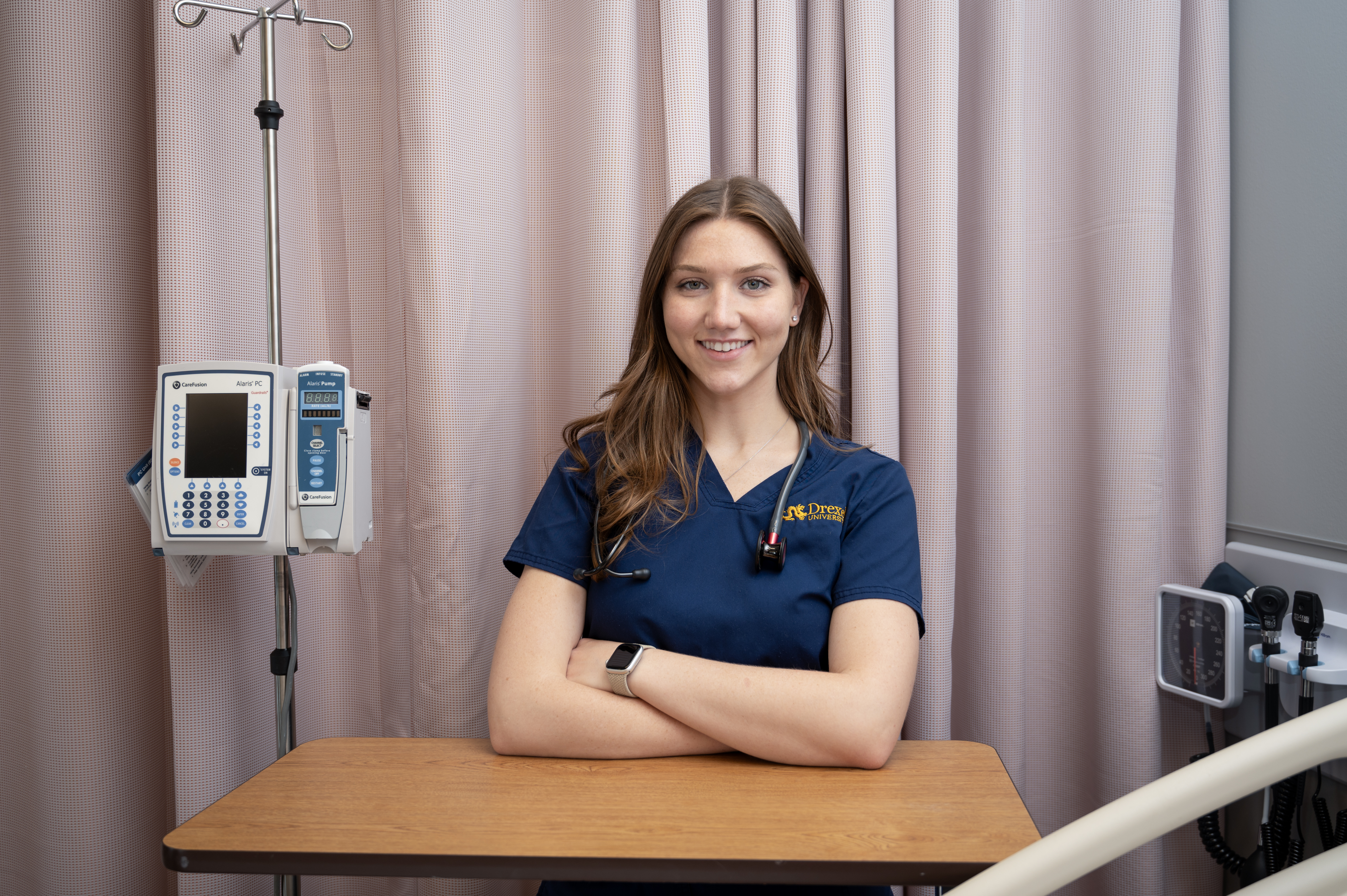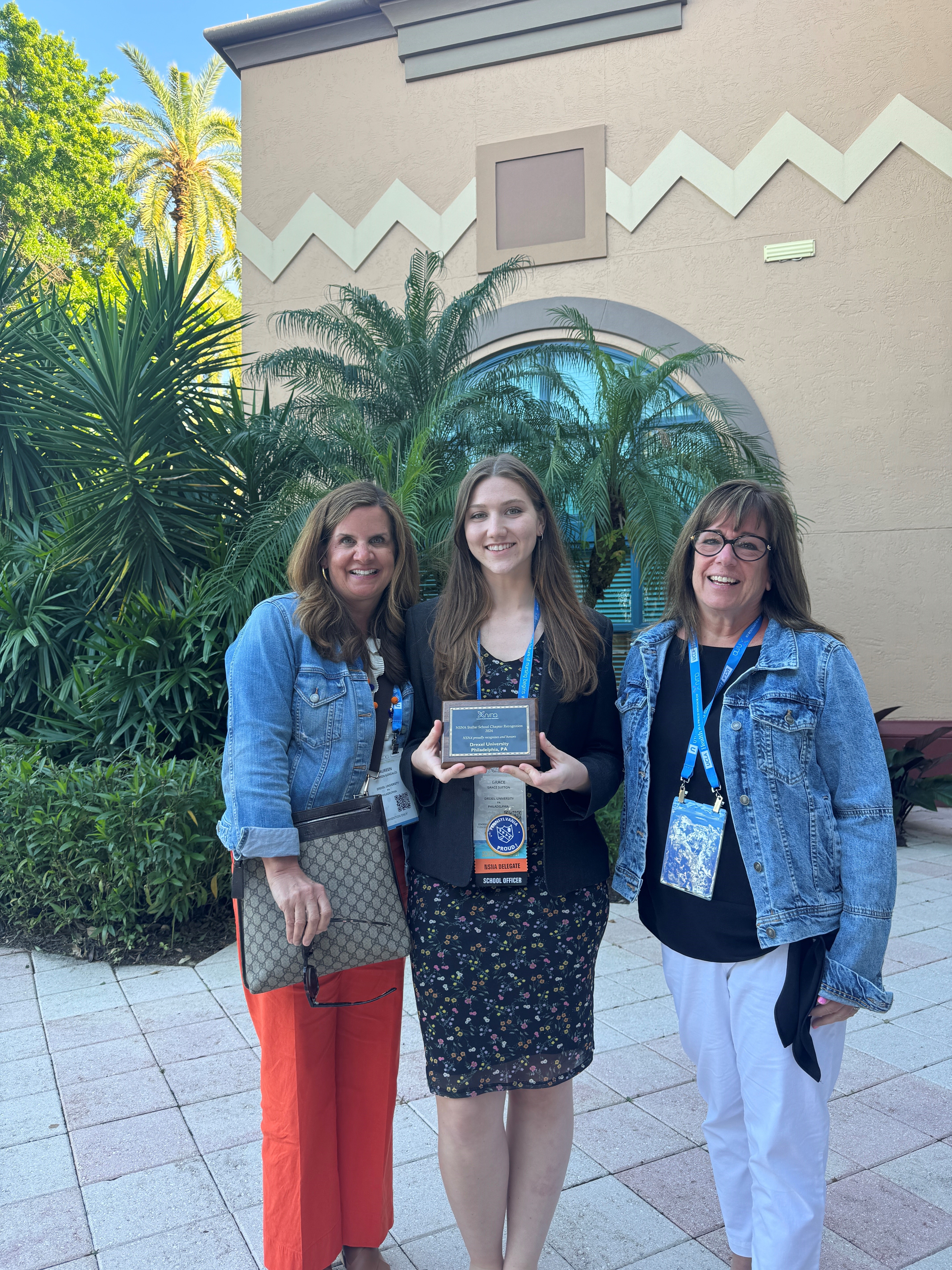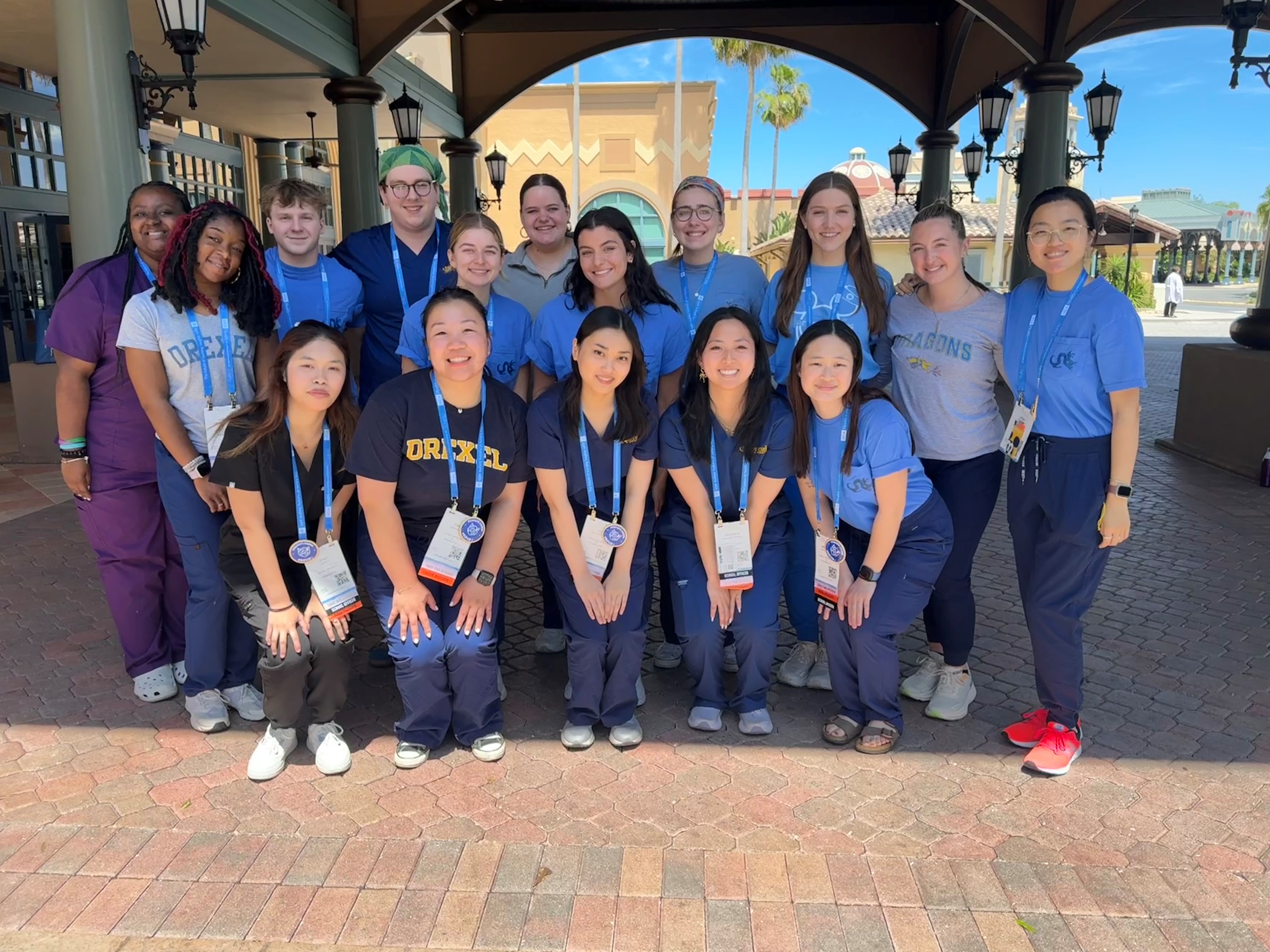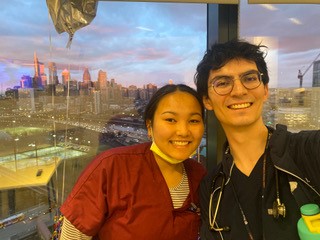Connections, Conventions and Camaraderie: 3 Reasons Drexel’s Student Nurses’ Association Is Thriving
April 26, 2024
Grace Sutton first learned about the Drexel University Student Nurses’ Association (DUSNA) as a first-year student in Drexel’s Bachelor of Science in Nursing program.
“I thought it sounded interesting and signed up for a few events,” she said. Sutton was immediately impressed—especially with DUSNA’s student board.
 “I felt really inspired by those people. They had great co-op jobs and worked in big hospitals. I realized quickly that their successes were because of the amazing things DUSNA allowed them to do.”
“I felt really inspired by those people. They had great co-op jobs and worked in big hospitals. I realized quickly that their successes were because of the amazing things DUSNA allowed them to do.”
The following year, Sutton ran for office. She served as public relations chair for two years, then secretary for one. Now in her fifth and final year of nursing school, Sutton is proud to be president of DUSNA.
DUSNA is a student-led organization with two faculty advisors. Although nursing students are automatically enrolled as members, Sutton said it’s up to the individual to participate in functions and leadership roles.
After COVID-19 disrupted in-person activities, Sutton and her team worked diligently to rebuild and encourage student involvement. Their efforts made a difference.
 “I can’t put into words how much this organization has blossomed in the last few years,” Sutton said.
“I can’t put into words how much this organization has blossomed in the last few years,” Sutton said.
The number of student members has increased to roughly 1,000 each year and attendance at events has risen noticeably. Among those noticing: the National Student Nurses’ Association (NSNA), the organization whose constitution and bylaws DUSNA follows.
The NSNA recently honored Drexel University with Stellar School Chapter Recognition, a prestigious designation that reflects the hard work the chapter has been putting in.
Sutton said DUSNA also received recognition five years ago, and that this hard-earned renewal “really shows that each year we get a little bit better as an organization.”
The first week of April, DUSNA members and leaders joined their peers from around the country at the NSNA’s 72nd Annual Convention, which was held in Lake Buena Vista, FL.

“A lot of what we do at the national convention is legislative,” Sutton explained. “Everybody who attends from Drexel participates as a delegate to vote on resolutions or amendments we’d like to put into place that directly affect nursing education or the field.”
Sutton credits the conventions for getting her to pay attention to issues that affect her profession. “I’m more inclined now to research what’s happening because I know the significance that legislation has on everyday nursing.”
In addition to the national convention held each spring, DUSNA attends the Student Nurses’ Association of Pennsylvania’s convention every November. It’s an opportunity to network with faculty and peers and learn how other state chapters operate. There’s even a competition, the NCLEX Challenge Bowl, that tests each school’s preparation for the National Council Licensure Examination, which each student must pass before becoming a registered nurse (RN). To get ready, DUSNA held a student-vs-faculty NCLEX Bowl at Drexel last fall.
“It was a lot of fun. We keep saying the faculty cheated because they took too much time,” Sutton joked. Sutton has been organizing a spring event to further prep graduating students for the NCLEX that will include senior nursing students from surrounding programs including University of Pennsylvania, Villanova University, Widener University and Temple University.
 As a school chapter under larger state and national student nurse organizations, DUSNA offers members many scholarship opportunities. At the opening ceremony for NSNA’s 2024 convention, DUSNA’s professional development chair, Gabrielle Sisselberger, was presented with the “Promise of Nursing in Pennsylvania Scholarship” and member, Aaron Pitt, Jr., received the “Johnson & Johnson Our Race to Health Equity Diversity Nursing Scholarship.”
As a school chapter under larger state and national student nurse organizations, DUSNA offers members many scholarship opportunities. At the opening ceremony for NSNA’s 2024 convention, DUSNA’s professional development chair, Gabrielle Sisselberger, was presented with the “Promise of Nursing in Pennsylvania Scholarship” and member, Aaron Pitt, Jr., received the “Johnson & Johnson Our Race to Health Equity Diversity Nursing Scholarship.”
“I’ve made so many connections through DUSNA, from friends who support me academically, to research and PhD staff at Drexel’s College of Nursing and Health Professions, to alumni from all over the country,” said Sisselberger. “Receiving this scholarship really made me excited to step into the co-presidency my senior year and to begin my career knowing I’ve been properly equipped by Drexel and DUSNA.”
Many of DUSNA events are community-based, such as assisting outside organizations with health screenings and initiatives around hunger and homelessness. The chapter also volunteered for six weeks through Drexel’s Lindy Scholar program to talk with middle school students at Alain Locke School in West Philadelphia about nursing careers, wellness, and more.
DUSNA has a strong professional development program, as well. Tommy Beck, BSN, RN, a 2023 Drexel nursing graduate, got involved with DUSNA as a first-year in 2019, filling a board opening for “breakthrough to nursing” which addresses deficiencies in nursing and ensures diverse representation. He later served as board secretary.
During his term, Beck often enlisted alumni to speak to the students and offer advice about their education and career paths.
“DUSNA definitely helped me understand that there were expansive opportunities in nursing,” Beck said. “To get a pulse on what the career is really like—the stress, the possibilities, the opportunities—can help you understand what your future might be like.”
Today, Beck is a clinical nurse on the inpatient hematology/oncology unit at the Hospital of the University of Pennsylvania, where he did his co-op while at Drexel.
 Beck said DUSNA gives students a way to meet casually, out of the classroom, while maintaining an academic focus, allowing them to network with classmates who will later become colleagues.
Beck said DUSNA gives students a way to meet casually, out of the classroom, while maintaining an academic focus, allowing them to network with classmates who will later become colleagues.
Sutton agreed it’s the peer-to-peer networking that entices most students to become active with DUSNA and stay connected. She explained that with Drexel having a 10-week quarterly structure instead of typical semesters, students have a fast-paced schedule and a lot of schoolwork on their plates, which could make some hesitant to participate.
“But that’s exactly why people enjoy coming to events. They make the time because they understand that these friendships and networking opportunities that you build in nursing school you then carry into the field,” she said.
By: Abby Schwartz